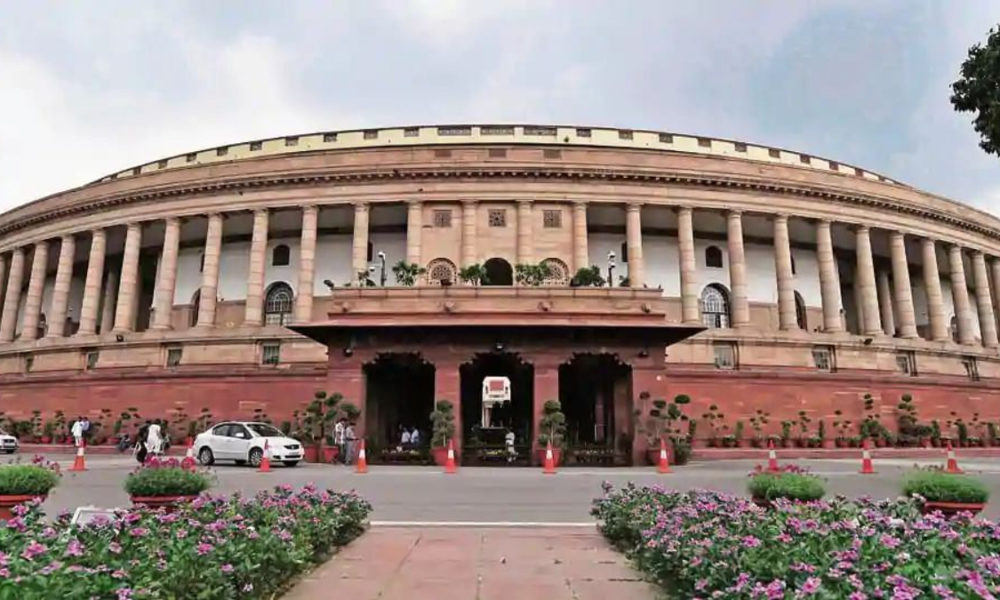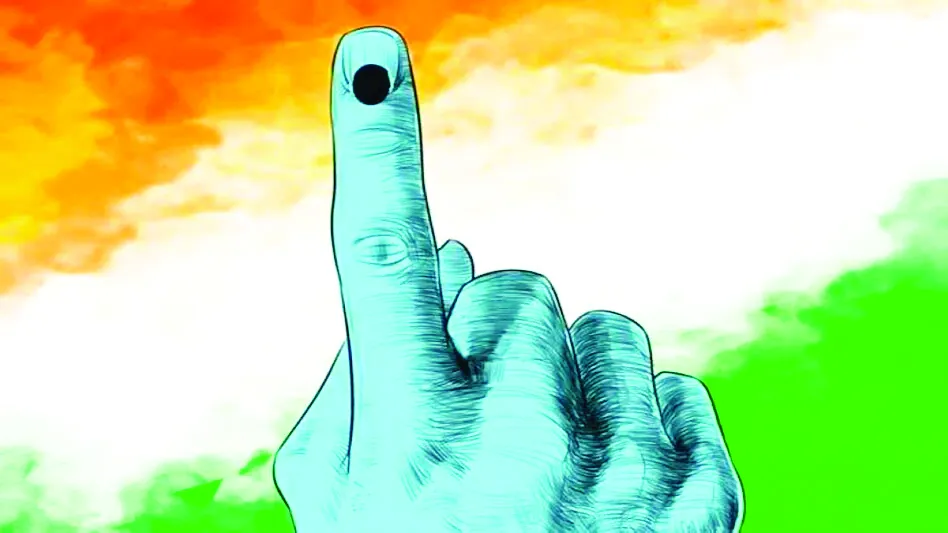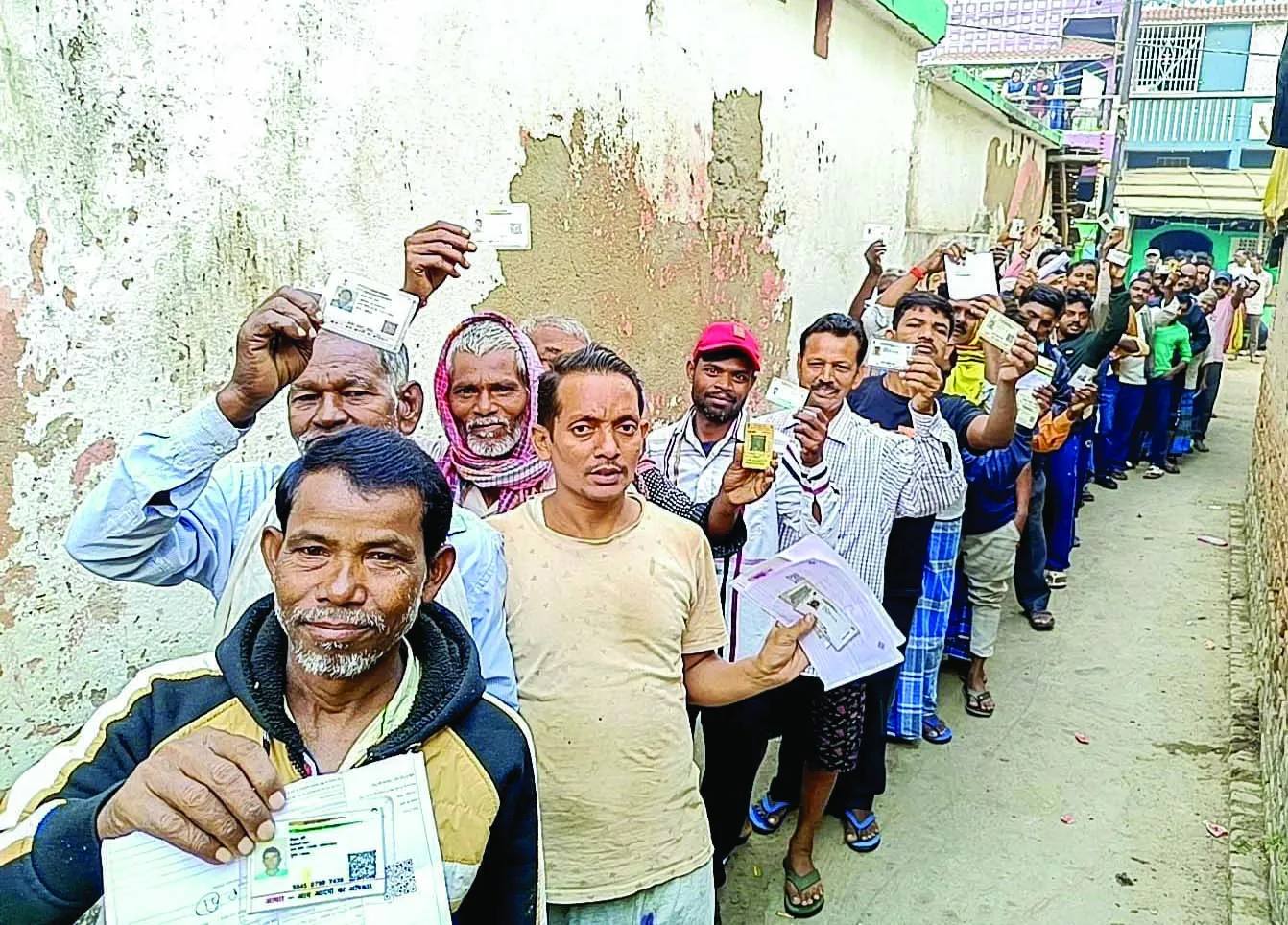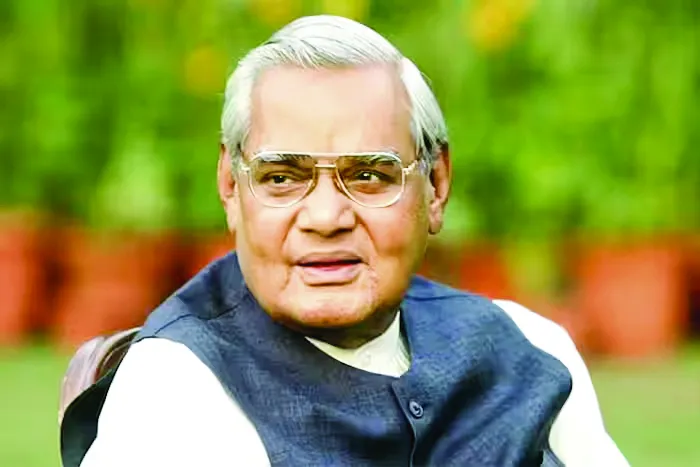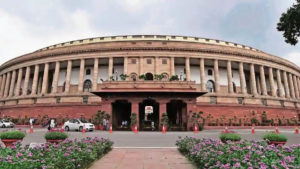The proclivity to resort to violence if the government did not respond the way they wanted showed complete frustration of Opposition members during the monsoon session that was adjourned sine die. Imagine what would have happened if Chairperson M. Venkaiah Naidu had not taken precautionary measures by deploying security staff.
On 11 August 2021, Opposition parliamentarians shamed Indian democracy by creating a ruckus and physically threatening members of security staff. Female parliamentarians charged that they were manhandled by male marshals. The video footage showed that it was they who pushed security people—male or female.
The fight left a bad taste more so since it happened in the House of Elders which is supposed to be having more calm and matured people as members. The unruly behaviour would always be quoted as shining examples of hooliganism by the Elders. Rather than evolving novel ways to protest that would fall within the norms of acceptable parliamentary behaviour, some Opposition parliamentarians decided to indulge in violence to settle political scores with a government they have miserably failed to counter or corner.
NCP leader Sharad Pawar has shown he has become like Mahabharat’s character Dhritrashtra whose love for his sons undermined his capacity to see the truth and uphold dharma. “In my 55 years of parliamentary career, I have never seen the way the women MPs were attacked… More than 40 men and women were brought into the House from outside. It is painful. It is an attack on democracy.” After the video footage of the violence came out, he should have withdrawn his statement and criticised the Opposition for their unruly behaviour. It is the women MPs and others who were aggressive and not the security staff.
The security people, who saved Parliament from terrorists’ attacks in 2001, should not be spoken in a language that maligns them. They are very much part of Parliament’s security system and go by the biddings of presiding officers of both houses. They are very disciplined and they know the protocol very well. Imagine the situation if some of these angry MPs had gone to the Chair and beaten the person occupying the Chair or beaten the minister for not accepting their demand. Should democracy in the House be settled by the physical strengths of the members? How to prevent such an occurrence if members become violent?
Vice President of India and Chairperson of Rajya Sabha M. Venkaiah Naidu’s anguish should not be missed. He said what Opposition members were doing was “sacrilege in the temple of democracy” and was propelled by a sense of competition among some sections of the House. He was speaking in the context of some members becoming violent during a discussion on farmers’ protest against new farm laws.
When the issue was being taken up for discussion on Tuesday (10 August), some Opposition members climbed the table of an official in the well of the House, one MP waved black cloth and another threw a file at the Chair. Some members squatted on the table for more than an hour. Venkaiah Naidu broke down and said: “…You can’t force any government to do this or do that…There can be a difference of opinion…they (MPs) could’ve discussed, protested and voted.”
The worst was yet to come. Next day, i.e., on Wednesday, there was precautionary deployment of security people to prevent occurrence of what had happened on Tuesday. After smooth passage of the bill that restored the states’ powers to notify their own OBCs list, hell broke loose when the government brought the Insurance Amendment Bill that sought to further dilute government stakes in State run Insurance companies as outlined in the budget.
Members rushed to the well calling it a sell off. Security personnel—both male and female—were there to cordon off areas around the Chair to prevent them from going near the Chair or table where officials sit. Members from the Opposition tore paper and threw it at the Chair, shouted slogans and jostled with security people while trying to break the cordon.
Members pushed security staff and later alleged that female MPs were pushed by male security staff. The video footage of the incident showed the contrary. Leader of the House Piyush Goyal demanded a high-level committee to inquire into the incident and strict action against those guilty. “Attack on security staff had lowered the dignity of the House,” he said while stressing that “no simple punishment can suffice”.
The lacerative and venomous tone of the Opposition continued outside the House. CPI Rajya Sabha member Binoy Viswam compared the government with the Taliban. “They (BJP) have made the Parliament a military battle. They used women as a human shield. They are like the Taliban of India. We are ashamed of them and the fight will continue outside the Parliament. The Insurance Bill is anti-national, anti-worker, and anti-democratic,” he said after the House was adjourned sine die.
Imagine the frustration that a duly elected government wedded to democratic principles is compared with Taliban. You first become unruly and when attempts are made to prevent you from becoming violent, you blame the government. Dilution of government shareholding in these insurance companies was promised in the Union budget to mop up additional resources and allow more roles for the private sector. One may disagree with the government but one should not forget that the government has full mandate to take such decisions. One could have registered objections by voting against the bill or staging a walk out. But nothing can justify attempts to hold the House to ransom.
There is no way the Opposition could stop passage of the bills in both Houses of Parliament. The best way in such a situation was to discuss the bill threadbare and highlight their objections. But a discussion would have exposed the evil design of the Left, the Congress and the Trinamool Congress to prevent the government from removing fetters from the country that aspires for excellence in every field. They are not bothered about the country as much as about their political survival.
The background to what happened on 11 August was already prepared. Merely two days into the session and Rajya Sabha member from Trinamool Congress Shantanu Sen snatched paper from the hand of IT Minister Ashwini Vaishnaw when he had risen to give a statement on the Pegasus controversy that was reported in the media a day before Parliament’s monsoon session was to begin. He was suspended the next day for the remaining part of the session.
Now that he had taken the lead in disrupting the House, other members of the Trinamool Congress too had to show their mettle. On the 14th day of the session, six MPs from the party entered the well of the house and showed placards and shouted slogans. The issues were a combination of Pegasus and farm laws since the Chair had accepted discussion on farm laws but had refused discussion on Pegasus. These MPs were Dola Sen, Md. Nadimul Haque, Abir Ranjan Biswas, Shanta Chhetri, Arpita Ghosh and Mausam Noor. They were suspended for the day.
Then came the fatal Tuesday when Pratap Singh Bajwa of the Congress climbed the table and threw Rule Book at the Chair while opposing the farm laws. It was an ugly scene seeing elders behave in this fashion. If they wanted to discuss farm laws, they could have done so under the subject allowed by the Chair. But discussion was not their forte. Bajwa was unrepentant.
Disruption and unruly behaviour are going to be the norm for time to come since the Opposition is completely frustrated. Prime Minister Narendra Modi rightly said that they should be exposed before the people. They have failed to rake up even one issue that would find traction with people. Sensitive issues such as Covid management and likely third wave and price rise, etc, were not discussed for a more personalised issue like Pegasus. They had calculated that this would become a Watergate moment for this government but nothing like this happened.
They are forgetting that this government had been voted to power to bring change from the old order. Now that the government has a majority in both Houses, the Opposition can’t stall the change momentum. The only way they can stop this government is by going to the people and seeking votes against the BJP. But they have completely failed in this. Even in West Bengal, the Congress and the Left could not prevent the BJP from becoming the main Opposition.
The Opposition’s next target is Uttar Pradesh. The agitation inside the House and frustration may enable them to try to come together on one platform. As of now it appears that the Opposition has already lost the battle in UP. Chief Minister Yogi Adityanath has done a commendable job in implementing the pro-poor beneficiary decisions of the Modi government. Also, he has provided the state with a much better law and order situation where people are feeling safe and secure. His no-nonsense approach has brought him admirers from all sections of the society.
What to do in such a situation? How to show that you exist? Vice President M. Venkaiah Naidu’s statement was apt when he said that there seemed to be a competition going on who could disrupt the House better. Is it not surprising that the Trinamool Congress took the lead on Pegasus, Congress on the farm issue, and the Left on Insurance Bill?
Coming back to Sharad Pawar. Vaulting political ambition blinds reason. He split the Congress and formed the NCP on the issue of Sonia Gandhi’s foreign origin in 1999, joined the Congress in alliance after eating his words, made an alliance with the Shiv Sena for political power and is now repositioning himself to become the Opposition consensus for the Prime Minister’s post closer to 2024. Ideologically too he cannot be trusted. The person who scripted APMC reforms has become a supporter of so-called farmers’ agitation that is opposing the same reforms. At least he should have respected the mandate that this government has.
The writer is the convener of the Media Relations Department of the BJP and represents the party as a spokesperson on TV debates. He has authored the book ‘Narendra Modi: The Game Changer’. Views expressed are writer’s personal.

